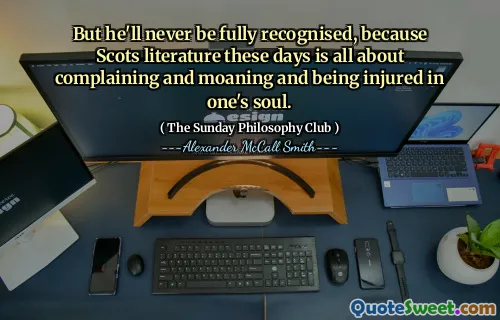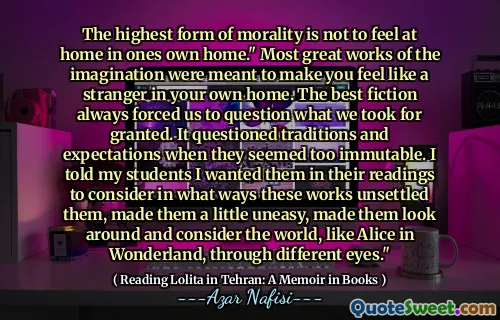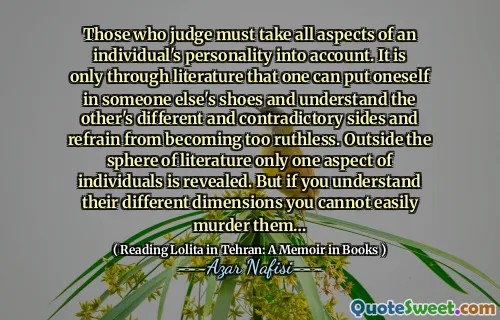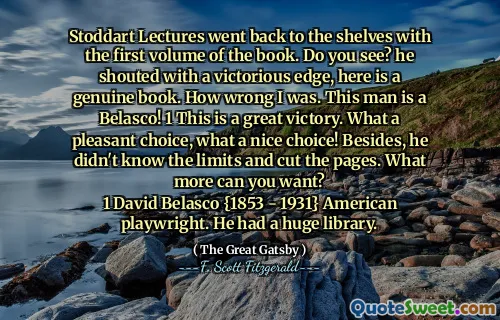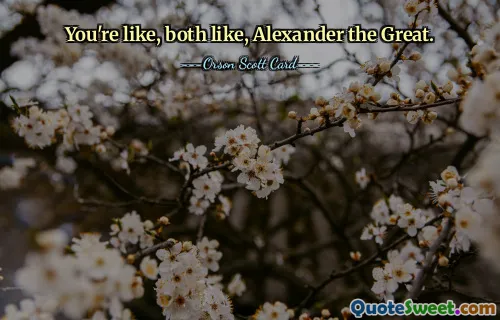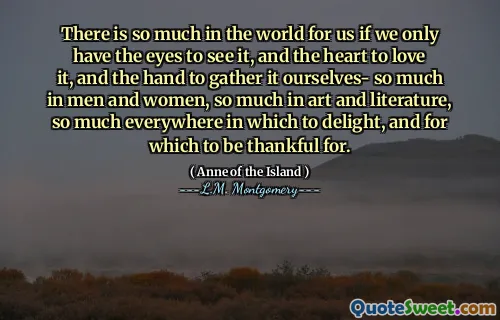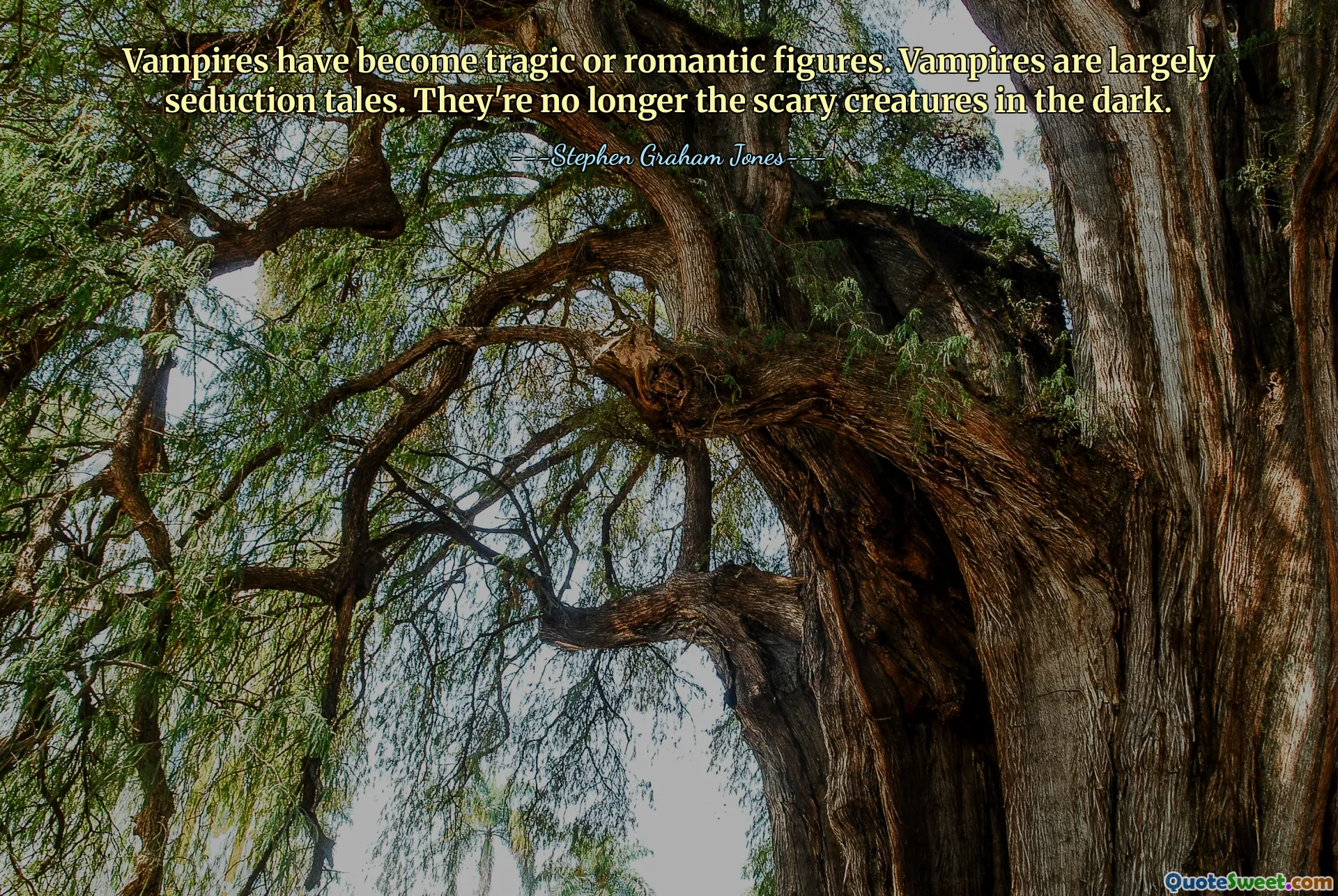
Vampires have become tragic or romantic figures. Vampires are largely seduction tales. They're no longer the scary creatures in the dark.
This quote highlights the transformation of vampires from fearsome, monstrous beings into symbols of seduction, tragedy, and romance. Traditionally, vampires embodied primal fears—darkness, death, the unknown—and served as metaphors for societal anxieties surrounding mortality and the supernatural. However, over time, modern portrayals have shifted toward romanticized versions, exemplified by characters like Dracula in popular culture, who are often depicted as alluring and complex rather than simply terrifying. This evolution reflects broader cultural changes, where the lines between good and evil, danger and desire, are blurred. Vampires now cater to ongoing fascination with immortality, seduction, and the allure of eternal youth, turning what was once a nightmare into a fantasy. Additionally, this shift may reveal society's desire to explore darker themes through a more palatable lens, emphasizing emotional depth and character vulnerability over outright fear. While this transformation broadens the appeal of vampire stories, it also raises questions about the nature of horror and how cultural perceptions influence mythmaking. The quote underscores that today's vampire myths have shifted away from the horror of the unknown and embrace a more nuanced narrative—one that combines seduction, tragedy, and the allure of mystery rather than straightforward terror. This change also reflects a broader cultural trend where danger and vulnerability intertwine, making these mythical beings more relatable and emotionally complex, ultimately broadening their metaphorical significance in literature and media.






